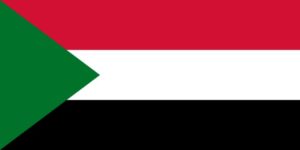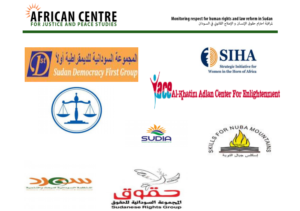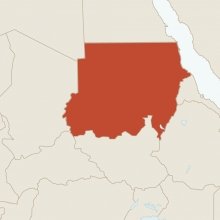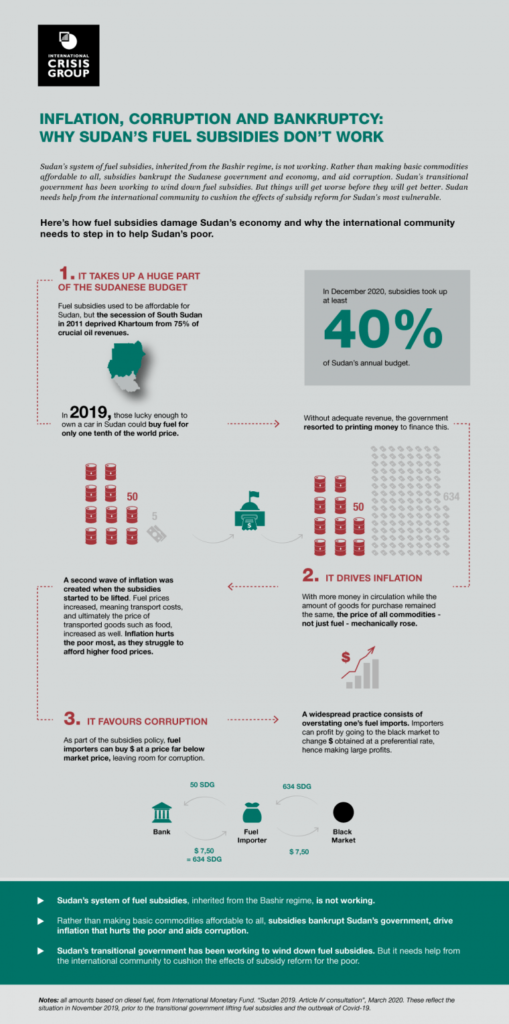Financing the Revival of Sudan’s Troubled Transition https://t.co/eMUTAwlXwG via @crisisgroup
— Democracy Digest (@demdigest) June 23, 2020
Sudan’s transition could easily veer off course without a reinvigoration of the country’s economy, according to a new analysis. Its government should focus on meeting the expectations of a tired and frustrated population, demonstrate that it can deliver benefits to the people and ease the short-term pain caused by overdue economic reforms, says the International Crisis Group.
But to succeed, the civilian cabinet will require international support to bolster its position within the hybrid transitional government. Donors should come together and back Khartoum’s
efforts. Failure to do so could jeopardise the transition, with tragic consequences for
the people of Sudan and the region, the ICG argues in Financing the Revival of Sudan’s Troubled Transition.
 More than a year after the fall of dictator Omar al-Bashir’s regime, the coronavirus pandemic is hitting Sudan’s still-fragile democratic transition, says Yasir Zaidan of the National University of Sudan.
More than a year after the fall of dictator Omar al-Bashir’s regime, the coronavirus pandemic is hitting Sudan’s still-fragile democratic transition, says Yasir Zaidan of the National University of Sudan.
Differences between the civilian and military leaders in the transitional, power-sharing government are growing, as the military consolidates its authority due to restrictive security measures that went into effect in April, including a ban on public gatherings and protests around the country, with particularly harsh restrictions in effect in the capital, Khartoum. COVID-19 has also brought chaos to Sudan’s troubled economy, damaging the transitional government’s credibility and popularity, he writes for World Politics Review:
- Disagreements soon emerged between the Sovereign Council and the Health Ministry over how to fight COVID-19. As the virus spread in the country, medical professionals went on strike to protest violent attacks on them by police. In May, the Sovereign Council announced the dismissal of Health Minister Akram Altoum on its Facebook page.
- The pandemic has also affected the government’s peace talks with various rebel groups in the country, one of Hamdok’s priorities as prime minister. …COVID-19 has caused delays to the government’s attempts to bring Bashir-era officials to justice for their crimes, as well. ..
- On top of these challenges, Sudan’s burgeoning democracy inherited a failing economy. …Adding to the economic challenges, Khartoum International Airport remains closed after the government ordered it shut down in March to prevent transmission of the coronavirus.
- The pandemic also forced the postponement of a major economic meeting that the government was planning to hold by the end of March, which aimed to solve disagreements among civilian factions regarding fuel subsidies and the allocation of budgetary resources. It was initially rescheduled for the first week of June, but never took place.
- On a positive note, Hamdok’s government did publish a roadmap in April that laid out some specific objectives for the transition and assigned responsibilities and timetables to different branches of the government for implementing them. But many of these objectives have yet to be met or are behind schedule.
 Clearly, the emergence of the novel coronavirus has further complicated an already difficult political transition in Sudan. Civil-military relations are troubled at best, and the economy is deteriorating. Robust international support for Sudan will be critical in the coming months, Zaidan adds. RTWT
Clearly, the emergence of the novel coronavirus has further complicated an already difficult political transition in Sudan. Civil-military relations are troubled at best, and the economy is deteriorating. Robust international support for Sudan will be critical in the coming months, Zaidan adds. RTWT
Donors and foreign partners should urge Sudan to prioritize justice and legal and institutional reforms in Sudan, even as they focus on the country’s pressing economic concerns, Human Rights Watch said today:
The Friends of Sudan group, which includes the USA, France, Germany, Britain, Ethiopia, Saudi Arabia, the United Arab Emirates, and Egypt, aims to support democratic transition and economic reforms set out in Sudan’s transitional constitution. While delivering urgent support to save Sudan’s floundering economy is critical, the conference is also an opportunity to engage with Sudan’s reform and justice goals in a holistic and constructive manner, Human Rights Watch said.
 “Almost a year into the transition in Sudan, we are seeing too little progress on justice and key reforms,” said Jehanne Henry, East Africa director at Human Rights Watch. “Sudan’s leaders and its international partners should use the upcoming conference to plan to forge ahead on several fronts simultaneously so that the transition resets the country’s governance and rights trajectory.”
“Almost a year into the transition in Sudan, we are seeing too little progress on justice and key reforms,” said Jehanne Henry, East Africa director at Human Rights Watch. “Sudan’s leaders and its international partners should use the upcoming conference to plan to forge ahead on several fronts simultaneously so that the transition resets the country’s governance and rights trajectory.”
Dark money is undermining the transition, according to a recent analysis from the European Council on Foreign Relations. Sudan’s transition to constitutional rule is failing: the reform of political institutions has not begun, while the country faces an intensifying economic crisis, a dramatic decline in living conditions, and a flare-up in localised violence, writes Dr. Jean-Baptiste Gallopin, a Visiting Fellow at the ECFR:
- The civilian wing of the Sudanese state is bankrupt but unwilling to confront powerful generals, who control a sprawling network of companies and keep the central bank and the Ministry of Finance on life support to gain political power.
- The United Arab Emirates and Saudi Arabia appear to be positioning a paramilitary leader known as Hemedti as Sudan’s next ruler, but the military is fiercely hostile towards him.
- Western countries and international institutions have let the civilian wing of the government down: they failed to provide the financial and political support that would allow Prime Minister Abdalla Hamdok to hold his own against the generals.
- The transition will only succeed if the government stabilises the economy and civilians work hard to tilt the balance of power away from the military and towards themselves
 A group of Sudanese independent civil society groups this week launched a campaign under the banner “The Sudanese Initiative to Lift US Technology Sanctions from Sudan”, IFEX’s Dalia Haj-Omar reports. The campaign aims to educate the Sudanese public and American policy-makers about the negative impact of US sanctions on the free access to information communication technologies (ICTs) and the internet in Sudan.
A group of Sudanese independent civil society groups this week launched a campaign under the banner “The Sudanese Initiative to Lift US Technology Sanctions from Sudan”, IFEX’s Dalia Haj-Omar reports. The campaign aims to educate the Sudanese public and American policy-makers about the negative impact of US sanctions on the free access to information communication technologies (ICTs) and the internet in Sudan.
The National Endowment for Democracy (NED) will pay tribute to the people of Sudan and their historic 2019 revolution when it honors three organizations working tirelessly to strengthen civil society in Sudan with the 2020 Democracy Award. The 2020 Democracy Award Honorees are:
- Regional Centre for Development and Training (RCDCS)
- Nuba Women for Education and Development Association (NuWEDA)
- Darfur Bar Association (DBA)

NDI
The U.S. Department of State, Bureau of Democracy, Human Rights and Labor (DRL) has announced an open competition for organizations interested in submitting applications for a project in Sudan that supports accountability and protecting civic space during Sudan’s 39-month transition period culminating with the holding of free and fair elections. Overall program priorities could include:
Strengthen citizen capacity to monitor and provide oversight around electoral and political processes, thereby enhancing accountability and transparency of the Civilian Led Transitional Government. Activities can include support to civil society to monitor and report on key political processes and institutions during the transition period. …
Strengthen civil society capacity to conduct advocacy around the electoral framework and the implementation of legal reforms that respond to citizen needs. Activities can include technical support to civil society organizations advocating for fair electoral and political processes and the facilitation of multi-stakeholder groups that bring citizens and government institutions together…
Support democratic government entities to interact with citizens and respond to their needs. Possible activities can include building sustainable methods for government entities to interact with citizens, such as constituency outreach and public hearings, voter education and mobilization campaigns, or innovative use of technology and media to create feedback channels.








